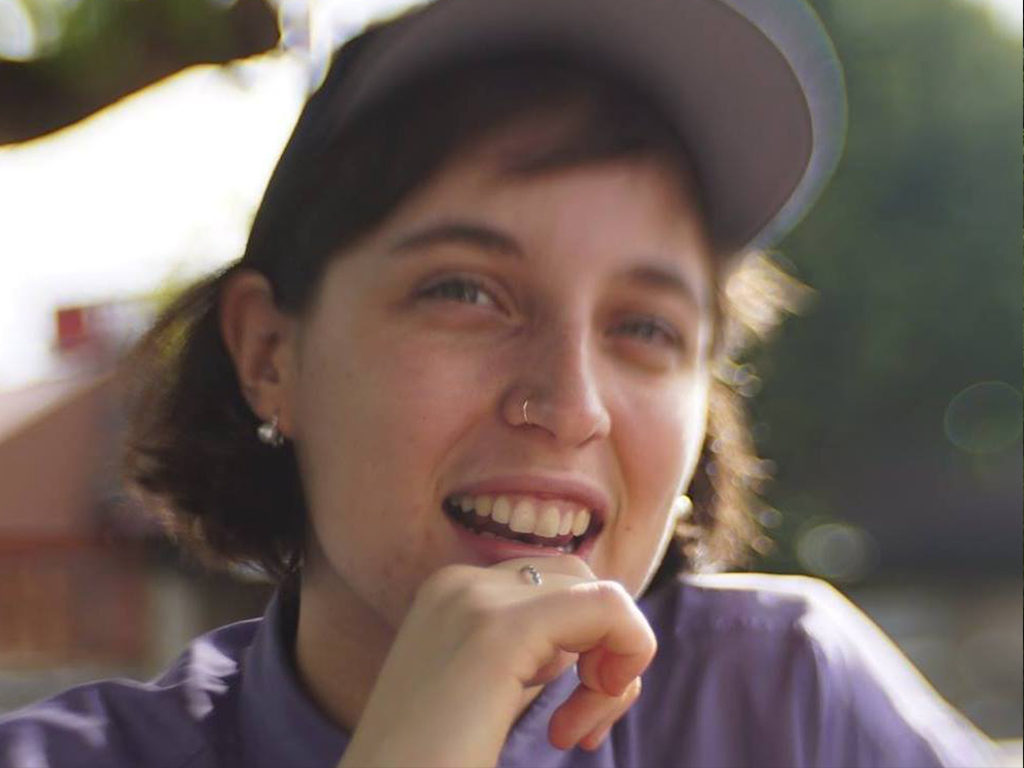I met up with Sofia at Clandestino, an LES bar, when I was in NYC for work in August. Currently, she's fundraising for her new film, "Ringen," an adaptation of the Karen Blixen short story (1958) by the same name. Here's some info about the film, taken from the Hatchfund page:
Ringen, which means "The Ring" in Danish, is told like a fairytale in reverse. It explores the themes of love, desire, self-discovery and loss of innocence while questioning traditional gender roles.
Louise, a blissfully devoted wife, wants her husband to desire her so she hides in the forest and finds herself face to face with a knife-wielding vagabond. The strange encounter leaves Louise unharmed but having lost her wedding ring and a white handkerchief. How will she be able to explain to her husband what has happened? All she knows is that her life will never be the same.
If anyone has the talent, drive, and vision to do Karen Blixen's wonderful story justice, it's Sofia. Don't believe me? Read on to learn more about her, the project, her filmmaking philosophy, and more.
Interview with Sofia Due Rosenzweig
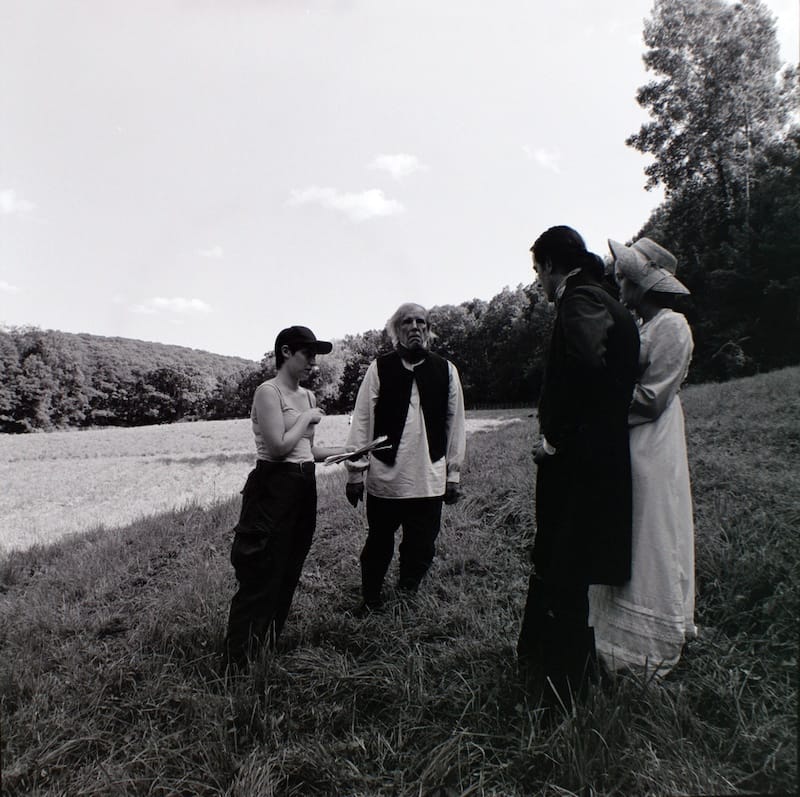
Woman in Revolt: Let's talk first about "Ringen." I know you're currently fundraising and I'm wondering if you've found any particularly good online sources to help you learn about grants and different opportunities.
Sofia Due Rosenzweig: We focused our search on female filmmaker support. There's actually quite a lot of resources out there once you start digging around. No Film School has really great lists.
Is your Hatchfund goal ($12k) enough to shoot the film as you envision it?
$12k is enough to do the film on a very basic level, but I really want to pay everyone who works on it, so that's why the stretch goal is $20k.
Do you have people who are willing to work for free and don't mind offering their services in exchange for experience?
Something that’s really unfair about the film business is that people are expected to work for free in the beginning of their careers. There’s definitely something to be said for working on passion projects with friends where everyone is volunteering their time. But if people are going to help me make my vision come to life, it’s important to me to compensate them for that effort, not just with experience or the opportunity to be on a cool set.
What about actors? How did you find them?
I met Rachel Povse on a micro-budget feature film called “The Homefront” (Ruiz-Healy and Walker) that I produced near San Antonio, TX in 2011. I knew that she was in touch with her inner child and could bring that out easily. In "Ringen," she plays Louise, someone on the cusp of adulthood, someone who’s just gotten married and now has adult responsibilities, yet is still daydreaming. Rachel struck a balance between an old soul and a youthful look.
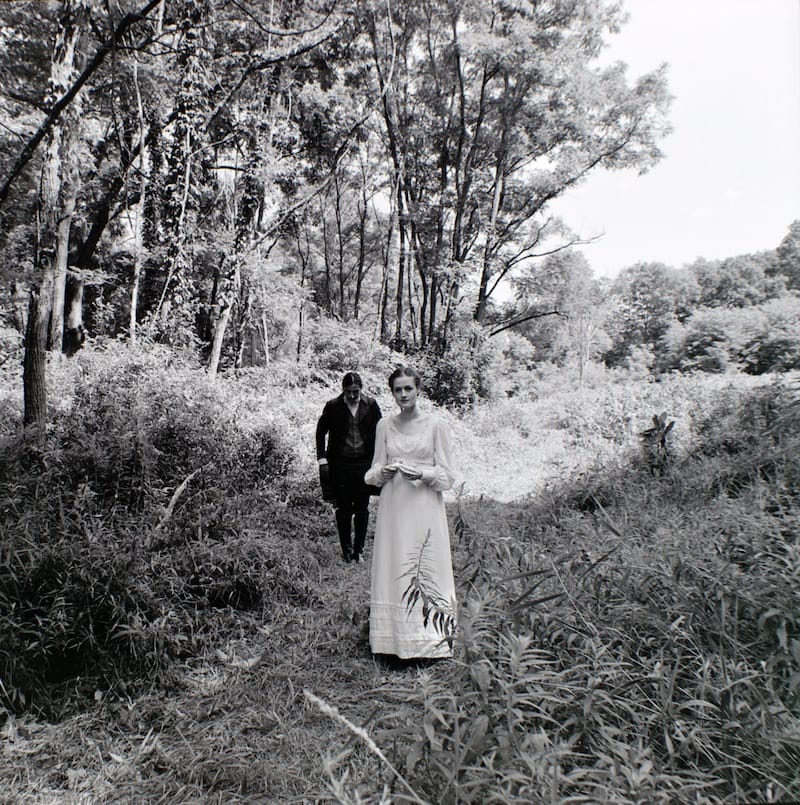
How about Rain Dove? I looked at her Instagram after I saw she was involved in the project and was like, "Oh, shit. How have I never heard of this person before?"
When I decided that the character was going to be androgynous and genderqueer, basically non-traditional in terms of gender, I started looking for models who skirted the line dividing the gender binary. I wanted to see if there was anyone out there who matched the idea I had in my head. I came across one of her pictures and I was like, "oh... this person!" The shot I found of her on Google images is actually pretty much exactly what I had envisioned in terms of the character’s energy and impression on the viewer. I put together a pitch packet and contacted her through her Instagram.
And she responded? That's so cool.
She responded within like 5 hours! I was blown away.
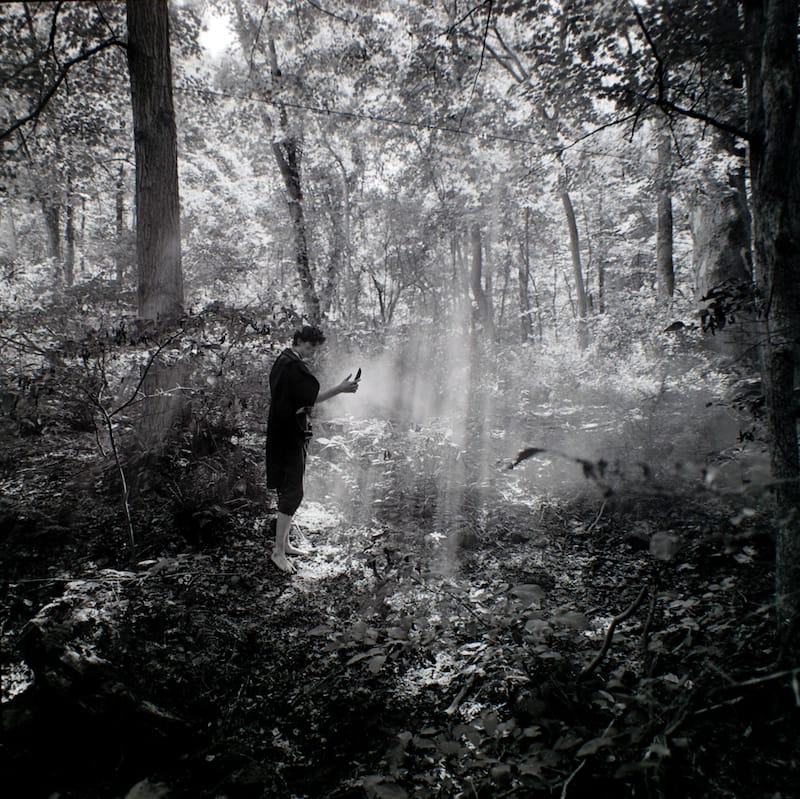
That's crazy. I always think of people as scary and unwilling to help, but any time I've ever reached out to someone, they've been great. It's reaffirming to find that most people actually don't suck.
Well it all comes down to having a great idea. Like with your project, I think you had a great idea. You're responding to a clear need. There's a lack of film criticism written by women and it's problematic because then the canon gets established by a very narrow gaze.
I felt the exact same way when Rain got back to me. I'd been so nervous about contacting her. I knew I had a solid project on my hands, but that didn't mean she was going to be interested. I wasn't sure if she was going to ask for a lot of money and if she did, how I was going to deal with it. But she responded immediately because she knew it was a good idea that she wanted to be a part of and I’m thankful for that.
Whenever you were first starting to think about this project, how did you decide how to shape the story? What's your process whenever you start something new?
I always wanted to make a film based on Karen Blixen's short story. As a Danish person, I have a huge amount of pride for anything cultural, especially someone who wrote under a male pen name to defy the norm. She was very cool and fierce, so I always admired her. The way she writes is incredibly simple, but perfect. I wrote a paper about this story in high school and knew I wanted to make a film out of it, but I also knew at the time that I didn't have the resources or the knowledge to do it. Now that I've worked with all these amazing people and been through the wringer in terms of film production, I feel well trained to bring the story to life.
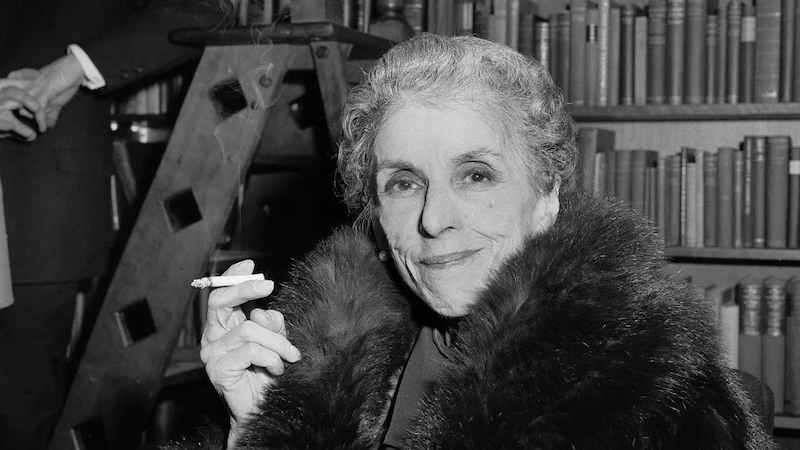
Blixen doesn't give any answers in the story; it's all about how you interpret them. I don't set out to give any answers, but to raise the same questions as her. One of the main themes is a loss of innocence and what innocence really means... what a woman's role in the world is. There's obviously much more to a woman's life than marriage and motherhood. When the story was published (in the 1950s), that was still sort of in question. In France, women had only gotten the right to vote 5 years prior (in 1945). Can you imagine?
We've come much further now and it makes sense to reexamine the question. What does gender really mean? How do we talk about and understand gender constructs? What are the inner lives of women really like? What does the loss of innocence even mean? All of this helped me formulate the shape of the story.
Tell me a little bit about your experience on "The Night Of." How did working on that show help you develop your technical skills and prepare you to work on "Ringen," your passion project?
I worked directly for Steve Zaillian. It was an incredible experience because he was very independent. I had a lot of time to just sit and learn and watch his process. I discovered that as a director, you have to be demanding. I know that sounds kind of obvious, but he was very, very particular even though it drove the crew crazy. He was unapologetic about what he wanted, even though he was facing a lot of criticism from his producers and the crew. I was a cheerleader for him because I respected the position and knew he had to be that way to achieve his goals.
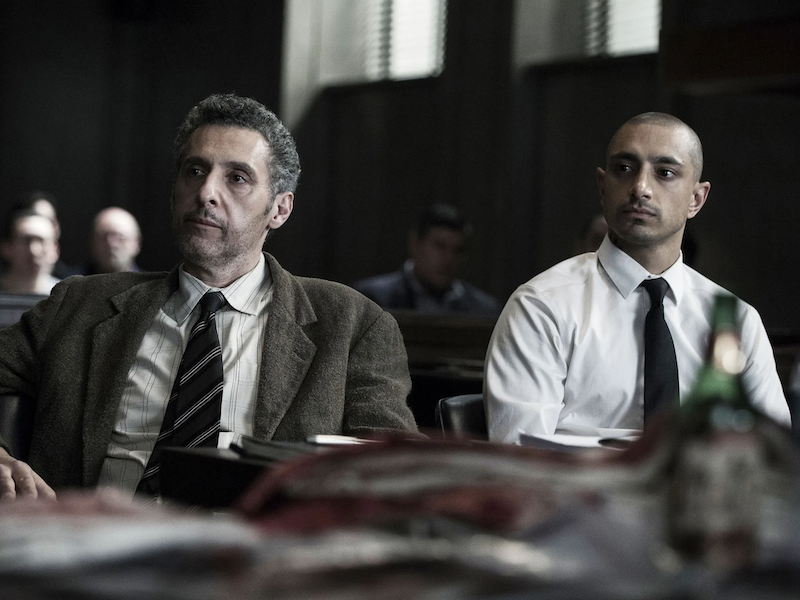
As a director, you also have to show up with your homework done. If you don't, no one will want to go to battle for you. You gotta know your shit and you have to own it. That's not to say you have to be a dictator, though. Working on "The Night Of" is also how I met Ellen Kuras.
Oh yeah, she's awesome. She's been involved in a ton of different amazing projects. She's worked with Michel Gondry, right?
Yep! She directs tv and commercials and she's shot films for directors like Spike Lee, Michel Gondry, Sam Mendes and more. She has a reputation of being able to work with very difficult directors. As far as her work as a DP, I admire her most for her handheld work because she's able to anticipate the action and really create meaning. She understands how images create meaning on such a profound, instinctive level... it's inspiring to watch.
In an ideal world, how would you like your career to progress? You've also done a bunch of really cool music videos - are you interested in doing more work in that arena?
Ideally, I'm just going to keep making films and working predominantly with women and non-binary folk. I want to close the (gender) gap in film. It's important to me and always has been. It can be a great source of frustration as much as it can be inspiring. I love music videos because they're an absolute blank canvas. Music has always been a big part of my life and my process. We'll see if this pans out, but I’d like to compose the music for "Ringen." Sally Potter composed the last song in "Orlando," and I thought... If Sally Potter can do it, I can do it. I don't think it's going to be a music-heavy film. It's more tonal.
Are there any music videos that you love and constantly re-watch?
Definitely Michel Gondry's work with Björk. Martin De Thurah did a really great video for Röyksopp with a woman floating down these, like... desolate, abandoned spaces. It's really awesome and I've imagined myself floating like that so many times.
Who are some filmmakers you love?
"Sculpting in Time" (Tarkovsky, 1985) is kind of my bible. I'm the type of person who likes to read about how to do things. In terms of how I approach filmmaking, I come back to this book a lot. I like the philosophical approach. People think Tarkovsky is very intellectual — and to a certain extent, he is — but what I love about his films is that even though they're very intellectual, you still have to sit there and experience them on an emotional level. If you get caught up trying to understand what every frame means, you’ll miss the emotional core of his films.
People like the Dogma filmmakers... and their visceral approach to filmmaking. And Andrea Arnold, who is not a Dogma filmmaker, but takes the same approach. It's not as calculated. Their films are experiential and meant to be felt, but not necessarily thought about. I often find myself falling between these two extremes and operating like a very precise filmmaker who sets up the scene perfectly but then shoots everything in a sort of documentary-style frenzy.
Other top films... Kelly Reichardt's "Wendy and Lucy" (2008). "The Life of Others" (2007) is also in my top ten. I don't know what happened to that filmmaker [Florian Henckel von Donnersmarck]... that film took like 7 or 8 years to make and the themes are so meticulously built. Nothing about the filmmaking is that transgressive or innovative, but it's written in a way where you can watch it several times and each time the film’s themes reveal themselves in moments you hadn’t noticed them before.
If you had a terrible day or were sick or something and wanted a comforting movie to watch in your pajamas, what would that be?
"Who Are You, Polly Magoo?" (1966). It's by William Klein, an American fashion photographer who made films at the same time as a lot of French New Wave. He skewers fashion, narcissism, and all of the absurd structures that we've created in the world. It's a hilarious film that is kind of documentary, kind of narrative, kind of experimental... black and white... some really gorgeous shots.
You went to school for film, right? Do you feel like your education was necessary/worth it?
I definitely think I wouldn't be making films right now if I hadn't done it. It was an incredible experience to be really immersed and I do miss it. Art school is kind of like high school on crack. It's very competitive, but it's also what allowed me to make my first short film, "The Months American" (2015). I don't recommend the experience for everyone. If you're the type of person who needs encouragement to create the work, then yes... it can be great.
Did you ever feel pressured after school to get another job/have a 9-5?
I battle that constantly. But I can't help myself, filmmaking is in my blood at this point. I'm willing to risk a lot to make it happen. I'm really privileged that I'm able to make these little stories.
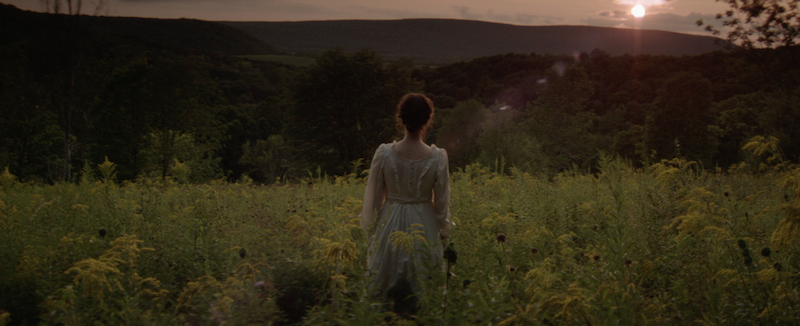
All set photography in this post comes from Ali Rashti.

